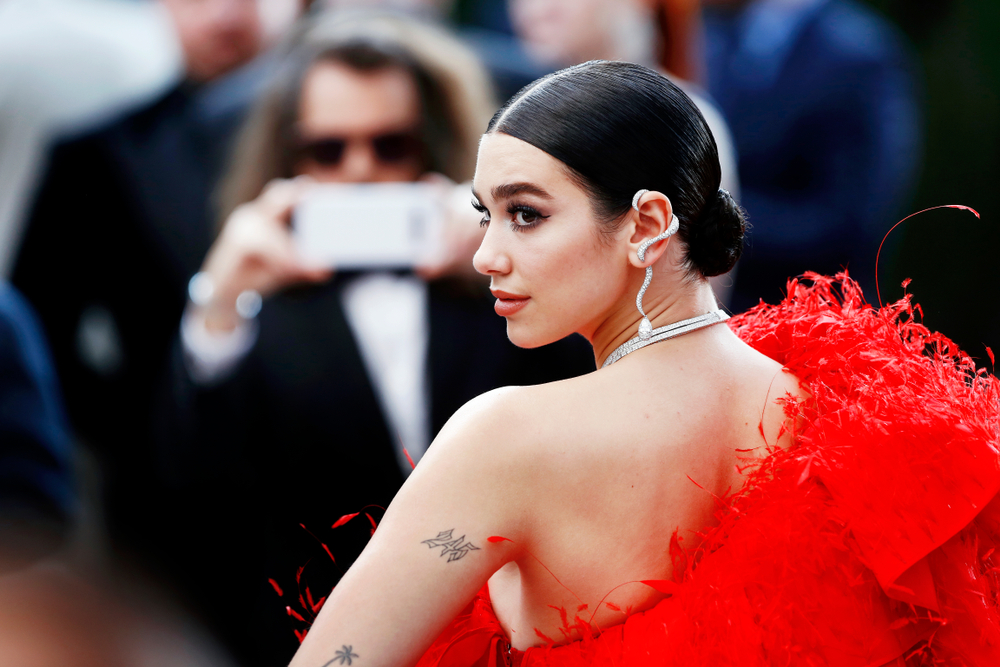Every year, there’s news about the most long-standing, bizarre or notorious trademark disputes. And 2021 was no different. If you think being semi-quarantined stopped high-profile brands from duking it out in court, you couldn’t be more wrong. Here are the trademark disputes from this year that we think are most notable—and what brands can learn from them.
Guardians Roller Derby vs. Cleveland Guardians Baseball Company

Major League Baseball (MLB) team the Cleveland Indians came under fire for the racist implications of its team name and logo—so they theatrically announced a name change in a video narrated by Tom Hanks. This bravado was inspired by more than just celebratory glee. Its pomp and circumstance seemed designed to steamroll a local roller derby team, known as the Cleveland Guardians since 2013, into giving up the trademark.
In 2017, the roller derby team registered the “Cleveland Guardians” name with the Ohio secretary of state. They offered to sell it and their website (ClevelandGuardians.com) to the MLB team for an undisclosed amount. A deal was never made and the baseball team went ahead with the name change announcement, hence sparking the dispute.
The trademark battle was settled before it ever went to court, with both teams agreeing to use the name with slight variations: Cleveland Guardians Baseball Company, LLC and Guardians Roller Derby.
Lesson Learned: As the original lawsuit presented by the derby team stated, “economic might does not make legal right.” Money and power can’t win you the right to someone else’s intellectual property. Play nice or don’t play at all.
Thom Browne vs. Adidas

German sportswear company Adidas protects its “three stripes” design with an iron fist, cracking down on any company who dares come close to violating their intellectual property—including but not limited to Forever 21, Ralph Lauren, Puma, Bally, Marc Jacobs, FC Barcelona, Tesla and J. Crew.
New York clothing company Thom Browne has evoked the ire of Adidas and Tommy Hilfiger by using the red, white and blue-striped motif that both apparel giants are known for. Adidas finally took action, asserting Thom Browne’s foray into three-stripe-laden leisurewear dilutes the Adidas brand and runs the risk of confusing potential consumers.
The lawsuit has yet to make it to court, but it seems like it could go either way. Adidas has a reputation for defending its trademark, and defending it well. However, Thom Browne might have a case that “three stripes” is too vague of a pattern to be claimed by either brand entirely.
Lesson Learned: Adidas may seem a tad overzealous…but they’re not wrong. Defend your trademark vigorously because IP does hinge on “use it or lose it.” Every time you fail to protect your mark, it weakens your ability to defend it later.
Frito-Lay vs. Snyder’s-Lance

The Frito-Lay vs. Snyder’s-Lance battle over “pretzel crisps” is a long-running trademark dispute for the ages. Snyder’s-Lance has been attempting to register “pretzel crisps” as a federal trademark since 2009, but PepsiCo-owned Frito-Lay has been challenging the registration, asserting no company can monopolize such a general term for a common snack food.
To make matters worse, the “pretzel crisps” mark was awarded to Snyder’s-Lance in 2004—but was later rescinded after two federal appeals courts overturned the ruling, deciding that the mark was generic and, therefore, unable to be trademarked.
The term “pretzel crisps” commonly refers to the Snyder’s-Lance product and it even owns the associated .com domain. Despite this, the mark cannot be trademarked since the name can be too broadly associated with a variety of bagged pretzel snacks.
Lesson Learned: Make sure your trademark is arbitrary or suggestive, not generic. Something too vague or too broad cannot be registered as a trademark by a single company, as it’s considered an unfair monopoly.
Various Celebrities vs. Paparazzi

When you think of celebrities battling paparazzi, you probably assume someone famous is suing a rogue photographer for trespassing or harassment. Not so in this case. Paparazzi photographers and their agents are suing various celebrities, including model Emily Ratajkowski, pop star Dua Lipa, actresses Naomi Watts and Annabelle Wallis, and singers Jennifer Hudson and Brian Wilson. What are these celebrities being sued for? Posting photos of themselves on social media.
The photos may be of them, but so long as the celebrities are being photographed in public, where a reasonable expectation of privacy is not assumed (events, concerts, dining out), then the legal ownership of the photograph belongs to the one who took it.
Some celebrities, like The Real Housewives of Beverly Hills star Lisa Rinna, are pushing back, but intellectual property lawyer Elizabeth Vulaj believes they don’t have a leg to stand on: “Professional photographers argue that they make a living licensing their images to media companies and outlets for a fee, and that they suffer a loss of revenue when celebrities use those photos on their social media accounts.” This, therefore, does not constitute fair use of the image.
Lesson Learned: A product defaults ownership to the person who created it even if there’s a subject contained within the body of work. Just because you’re in it, doesn’t mean you own it.
The Takeaway
Trademark infringement can be costly no matter what side of the courtroom you’re on. Heed these lessons from the disputes that have come before you, so you can not only protect your brand—but also avoid the pitfalls of IP ownership.
For more insights and case studies about brand management, trademark law, and intellectual property rights, follow .SUCKS on Twitter, Facebook and LinkedIn.
Photo Credits: Iryna Rahalskaya / Shutterstock, Brent Hofacker / Shutterstock, Jack Skeens / Shutterstock, Andrea Raffin / Shutterstock










